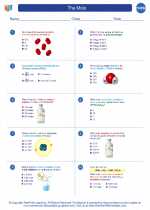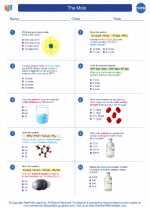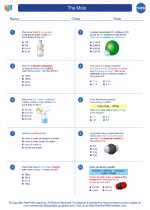Organs
An organ is a group of tissues that work together to perform specific functions in the body. Organs are essential for the survival and proper functioning of living organisms.
Types of Organs
There are several types of organs in the human body, each with its own specific functions:
- Vital Organs: These include the heart, lungs, liver, and brain, and are necessary for survival.
- Accessory Organs: These include the pancreas, gallbladder, and spleen, and support the function of vital organs.
- Reproductive Organs: These include the ovaries and testes, and are involved in the reproductive process.
- Sensory Organs: These include the eyes, ears, nose, and tongue, and are responsible for sensing and perceiving stimuli from the environment.
Organ Systems
Organs are organized into systems that work together to carry out bodily functions. The main organ systems in the human body include:
- Cardiovascular System: Includes the heart and blood vessels, and is responsible for circulating blood and nutrients throughout the body.
- Respiratory System: Includes the lungs and airways, and is responsible for the exchange of oxygen and carbon dioxide in the body.
- Digestive System: Includes the stomach, intestines, and liver, and is responsible for breaking down and absorbing nutrients from food.
- Endocrine System: Includes glands such as the pituitary and thyroid, and is responsible for producing hormones that regulate various bodily functions.
- Reproductive System: Includes the ovaries, testes, and associated structures, and is responsible for the production of offspring.
- Nervous System: Includes the brain, spinal cord, and nerves, and is responsible for transmitting signals and coordinating bodily functions.
- Excretory System: Includes the kidneys and bladder, and is responsible for removing waste products from the body.
- Immune System: Includes the spleen, thymus, and lymph nodes, and is responsible for defending the body against pathogens and foreign substances.
Study Guide
When studying organs, it's important to understand the following key points:
- Identify the major organs in the human body and their functions.
- Understand the relationships between organs and organ systems.
- Recognize the importance of maintaining the health and proper functioning of organs through lifestyle choices and medical care.
- Explore common disorders and diseases that affect specific organs and their impact on overall health.
- Consider the ethical and moral implications of organ donation and transplantation.
By mastering these concepts, you can develop a comprehensive understanding of the significance of organs in maintaining homeostasis and overall well-being.
.◂Chemistry Worksheets and Study Guides High School. The Mole
The resources above cover the following skills:
Chemistry II
Reactions
Use mathematical representations to analyze the proportion and quantity of particles in solution.
Equilibrium
Analyze and interpret data to explain the change in concentration of products and reactants, and the stable state achieved under reversible conditions.



